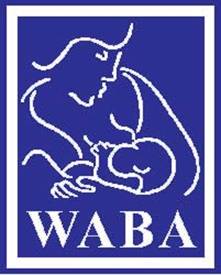‘Ten Years of the Right to Food Guidelines: Gains, Challenges and Concerns’
WABA announces the launch of the global Right to Food and Nutrition Watch 2014, dedicated to celebrating and critically assessing ‘Ten Years of the Right to Food Guidelines: Gains, Challenges and Concerns’ on the 10th Anniversary of the FAO Right to Food Guidelines.
“As a global alliance of individuals and organisations concerned with the protection, promotion and support of breastfeeding, WABA asserts that breastfeeding has a vital role in making food security a reality for millions of babies born every year”, asserts Jay Sharma, WABA Executive Director. “While included in the Voluntary Right to Food Guidelines, current statistics show that breastfeeding rates are abysmally low across the globe due to a confluence of factors including aggressive marketing of breastmilk substitutes, and lack of political will and a reluctance to make resources available by governments” he argues.
This dire scenario is even more critical for countries ravaged by emergencies and disasters! “Disasters are not exceptional situations in which states are exempt from their responsibilities with regard to the right to adequate food and nutrition… During emergencies, support for exclusive and continued breastfeeding is absolutely critical for the health and lives of infants and young children”, argues WABA’s representative to the WATCH Consortium board, Dr Marcos Arana, in his co-written article for the WATCH 2014 report. “Donations and untargeted distribution of breast-milk substitutes and ready-to-use foods (RUFs), together with the distribution of globally marketed seed varieties, create dependence, discourage breastfeeding by interfering with women’s options to decide the best manner in which to feed their children, erode local food culture, and undermine food sovereignty”, he stresses.
See more at: WABA Advocacy Section
